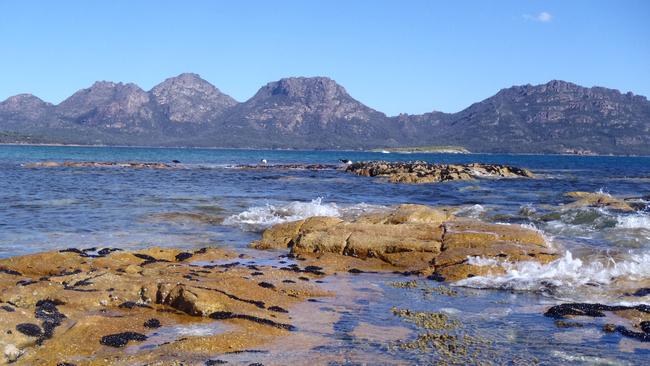Talking Point: Coles Bay not ready for boom
NICK JOHNSTON: It’s hard for entrepreneurs to invest in regions with failing infrastructure and sewage leaks

Opinion
Don't miss out on the headlines from Opinion. Followed categories will be added to My News.
THE key to sustainable, responsible investment in Tasmania’s tourism infrastructure does not involve rocket science. Private enterprise and government economic policy must be in tune with one another. We need a shared vision and a common purpose.
That is not happening. In fact, harmony and the will to achieve a common objective seem further away than ever.
For more than two decades there has been a complete lack of focus on basic infrastructure funding across regional Tasmania.
It applies at both state and local government level. It has led to the situation that makes it virtually impossible for Tasmanian entrepreneurs to invest in their future.
There is no better manifestation of the problems this has created than at Freycinet and the township of Coles Bay.
It was not that many years ago that Coles Bay was the world’s best kept secret, the weekend playground of shack owners from Hobart and Launceston. They navigated each weekend down a dreadful piece of gravel road to reach their nirvana.
“I survived the Coles Bay Road,” read their car bumper stickers.
The road was sealed in the 1970s. It opened up Freycinet to the rest of the world, but the road is where the public spending on infrastructure stopped.
For example, there is still no reticulated sewerage system in the town.
Today Freycinet attracts nearly 300,000 visitors a year and it is increasing, by far the most popular national park, ahead of Cradle Mountain and second only to the Port Arthur Historic Site for overall tourist numbers.
Each summer, the national park is inundated with visitors, drawn principally by the vision of Wineglass Bay.
Coles Bay becomes a town under stress. We are ruining the very experience that brings people here.
We need investment to meet current tourism demand, with the State Government forecasting further tourism growth of 15 per cent in the next three years.
Yet the lead time for investment is so long and the cost of development so high that it is unaffordable so long as governments at state and local level continue to refuse to acknowledge that we have a problem.
Tourism growth is fine, if Tasmanian communities can cope — and towns like Coles Bay cannot.
Before tourism entrepreneurs take the plunge to invest more and get a return on that investment, they must provide major capital head works, like sewerage and water. They have perpetual running and maintenance costs.
Adding to the dilemma of whether to invest in more quality accommodation, restaurants, etc is the proliferation of Airbnb properties. Many of the houses that once were shacks are now let out as Airbnb accommodation. It has had a huge impact on major tourism accommodation development in Tasmania.
A little-known by-product of this is how it affects staff housing in the Freycinet area. Because there is a shortage of housing, staff are living in caravans and tents.
These issues are not particular to Coles Bay, but apply from Bridport to Bruny and everywhere in between on the East Coast. The State Government has become obsessed with foreign investment. It has reduced red tape but has shown little regard to the adequacy of infrastructure such as sewerage and water.
While we wait for it, we stagnate. The new paradigm, which Airbnb has contributed to, is that there can be no investment in the tourism industry from anyone that makes their income solely from the tourism sector.
The money must come from other income. It comes from money made in other industries.
Private investors in the Freycinet area, myself included, are treading water. We cannot commit capital to further expansion, to creating more tourism jobs, because we don’t know what the government intends to do to address the crisis on the peninsula.
That crisis has been brought on by inadequate planning for the growth in tourism numbers.
Is the Tasmanian Government going to allow continuing unbridled growth in Airbnb without addressing the concerns of those who have been long-term investors in tourism? What of the serious sewage pollution problem we have?
As the top visitor destination after Port Arthur, Coles Bay cannot cope with a 19th century sewage management system — septic tanks.
There are 320,000 people who visit here each year. Unwittingly, they are harming the very attraction that brings them here.
Our beaches have already been closed for this very issue.
With the lack of priority given to providing a sewerage system, the people who live and work here are the last cab off the rank; with the continued use of septic tanks, seepage and raw sewage will continue to pollute the Coles Bay township environment and Great Oyster Bay.
Is this appropriate for the state’s premier national park?
We cannot put our heads in the sand and wish for the Coles Bay of the 1960s and ’70s. It has moved beyond that, but the infrastructure in the town has not.
Millions of dollars in private investment are on hold until we know that the government is behind the town and its businesses. Then we can do our bit.
Nick Johnston operates Edge of the Bay resort at Coles Bay.


